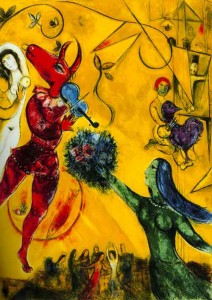 The air here is always dry. Thin, but also thick. A white pipe the width of a soda can reaches from floor to ceiling, making the never-ending music of a rainstick. From it comes enough heat that even on the coldest days of winter I’ve had to keep the window open at least a crack to counteract its effect on the room. On the coldest nights, I still use a fan. Hot and cold perform their rival dance for me, constantly. The cat looks up at me, knowingly. Her eyes are a dull yellow and translucent, with cold blackness in the middle. What does she know?
The air here is always dry. Thin, but also thick. A white pipe the width of a soda can reaches from floor to ceiling, making the never-ending music of a rainstick. From it comes enough heat that even on the coldest days of winter I’ve had to keep the window open at least a crack to counteract its effect on the room. On the coldest nights, I still use a fan. Hot and cold perform their rival dance for me, constantly. The cat looks up at me, knowingly. Her eyes are a dull yellow and translucent, with cold blackness in the middle. What does she know?
Blah, blah.
Must one describe like that? Really? Must every scene be thus set? In a period of lull between frantic freelance projects, I’ve been going back to the 2004 book Killing the Buddha: A Heretic’s Bible, the first volume that came out of KillingTheBuddha.com, where I’ve recently begun working as an editor. And (maybe it’s because I haven’t read a novel in ages) I’m blown away by how everything is so drenched in imagery and description. It’s delightful. From page 28:
The pipes of the church’s organ swelled—that weird, spiraling hysteria at the high end of the scale, raising the eybrows of the music’s bass foundations. Highs and lows wrenching us apart, making us all into Emma, nothing but sensation and reflection—hot and cold, bright and dark, hard metal and soft flesh, smoke rising and a building collapsing [read: 9/11]—as the pulse and melody of the music collided in the final phrases of the song.
(Oh lookie there, it talks about hot and cold too!) The way I’ve been writing lately, this is how I’d say the above:
We listened to the church organ and thought of 9/11.
It wasn’t always like that for me. The first assigned book in my first college writing course was The Street of Crocodiles by Bruno Schultz. As the title might help you imagine, the whole thing was beautiful descriptive imagery. Beautiful filler. But that book was the guidepost for all my early writing—which in those days was fiction. The first lines of the novella I wrote that semester read like this:
and the walls and the chairs and tables and stairs let out their breaths and held for not daring to make a sound over the silence inside, over the wind blowing furiously from out towards Boulder. Still air hanging, suspended, hung over the hard wood floor like an unwelcome guest, perfectly welcome but feeling unwelcome and frozen still in the corner among all the merrymaking that to the merrymakers wasn’t really all that merry except for the sound of the wind blowing through the dark stained walls, that was all they listened to, it wasn’t so terrible merry as the air might have thought.
Geez. What happened?
- I went to graduate school
- I stopped writing made-up fiction and started writing about real stuff
- I started having to write for money
When I think back to the experience of writing that (and I love that passage of mine, whether you do or not), I know where it comes from. Dwelling in those descriptions taught me what would come next. The hardest thing about writing fiction was making up events, and with description I could twiddle my thumbs and keep my pen moving until, accidentally, something happened out of it all. Now, since the events that I write about are already provided by so-called reality, there’s no need to bother with any such nonsense.
I’m no Hemmingway. Plainness doesn’t come from principle. Reading back through Killing the Buddha, and through my own writing c. 2002, feels nostalgic, not disgusting. I can’t help but sense that resplendent, dizzying passages are what writers are supposed to do. Yes? No?
Have I gotten lazy? Or just more matter-of-fact?
Comments
3 responses to “Must One Describe?”
[…] whole strong class=keywordwriting/strong, publishing and/or book marketing scene. The question Must One Describe? – therowboat.com 02/27/2009 The air here is always dry. Thin, but also thick. A white pipe the […]
[…] Sandy Florian. The Street of Crocodiles condemned me to a wonderful year writing in the service of description, that fantastic event where—and I’m borrowing from Grossman here—the text becomes […]
[…] else—all offenses against that thin and impossible ideal. His respect comes through a piety of description, a piety that can become as petty as a prayer for a good grade on a test, which remains piety […]